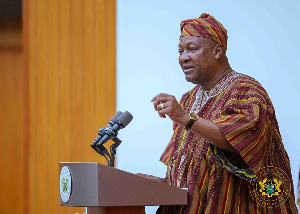Some residents including Drivers at Awutu Breku Ghana Private Road Transport Union (GPRTU) Station B in the Central Region have appealed to President Akufo-Addo to establish a male circumcision centre for them as part of the one-district-one-factory policy.
The residents speaking to Rainbow Radio’s Nana Yaw Asare said majority of their men are ‘Koti Boto’ which literally means uncircumcised men.
The residents were of they view that the circumcision centre which they termed as a factory will go a long way to help our men.
"Our men are ‘koti boto’ (uncircumcised) and so we want the ‘Koti Boto’ centre. We want President Akufo-Addo to give us a centre under the one-district-one-factory. Forget our poor roads, forget about water systems and any other facilities and give us a ‘Koti Boto’ centre, a driver said.
Another resident said, ‘’our men have not been circumcised and are worried about that. This a major concern for us as residents. We want to appeal to President Akufo-Addo to consider our plea and establish a centre for us under the 1D1F policy,’’ another resident said.
It remains unclear whether government will consider the appeal because the appeal does not fall under the category of the 1D1F policy.
The mission of the One-District, One-Factory programme is to identify and create business opportunities in the districts, harnessing the strengths and resources of the locals in an efficient technology and demand driven value chain.
The programme is expected to facilitate the creation of between 7,000 to 15,000 jobs per district and between 1.5 million and 3.2 million nationwide by end of 2021.
Programme was instituted by His Excellency, President Nana Addo Dankwa Akuffo-Addo to address the challenge of slow economic growth at the district level through a massive nationwide industrialisation drive, which will equip and empower communities to utilise their local resources in manufacturing products that are in high demand both locally and internationally.
This will allow the country to reap the well-known rewards of industrialisation, such as gains in efficiency in every facet of life in our society, increase in agricultural and manufacturing output, a reduction in the reliance on imports and increase in the production of consumer goods and food availability.
Regional News of Saturday, 1 December 2018
Source: rainbowradioonline.com













